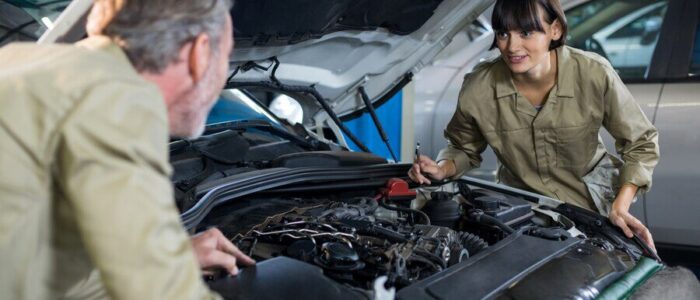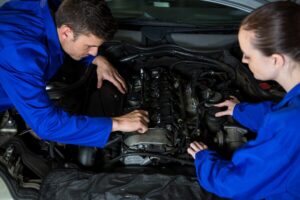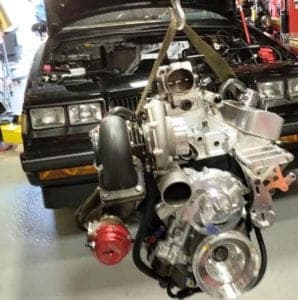
Maintaining a healthy engine is vital for the smooth functioning of any vehicle. However, despite regular maintenance, there comes a time in the lifespan of every engine when replacement becomes a pressing consideration. Whether due to wear and tear from extensive use, neglect, or unforeseen damage, recognizing the signs indicating the need for engine replacement is crucial. In this blog, we delve into the various indicators that suggest it might be time to bid farewell to your current engine and explore the factors to consider when contemplating this significant decision. From performance issues to increased fuel consumption, we’ll navigate the complexities surrounding engine health and replacement, offering insights to guide you through this process effectively.
Performance Degradation: Recognizing Symptoms
As engines age, their performance inevitably declines, manifesting in various symptoms. One common indicator is reduced power output, noticeable during acceleration or uphill climbs. Additionally, you might experience rough idling or a decrease in fuel efficiency, suggesting internal inefficiencies. Strange noises like knocking or tapping can signal mechanical issues within the engine, while visible exhaust smoke, particularly if it’s blue or black, indicates potential problems with combustion. Recognizing these symptoms early is crucial, as addressing them promptly can prevent further damage and help determine if engine replacement is necessary.
Diagnostic Techniques: Identifying Engine Wear
Diagnosing engine wear requires a combination of visual inspection, diagnostic testing, and sometimes even dismantling components for a closer examination. Visual inspection involves checking for leaks, corrosion, or damaged parts such as belts and hoses. Diagnostic testing includes using onboard diagnostics (OBD) scanners to retrieve fault codes and analyzing data from sensors to pinpoint irregularities in engine performance. Additionally, conducting compression tests and leak-down tests can assess the condition of internal components like piston rings and valves. Through these techniques, mechanics can accurately identify the extent of engine wear and determine if replacement is the most viable solution.
Mileage Milestones: Knowing When it’s Time
Recognizing mileage milestones is crucial for assessing the health of your vehicle’s engine. As cars accumulate miles, certain markers serve as indicators that it might be time to consider engine replacement. Here are five key milestones to keep in mind:
- 100,000 Miles: Reaching this milestone often prompts a closer inspection, as many components may be nearing the end of their lifespan.
- 150,000 Miles: By this point, wear and tear on critical engine parts may become more pronounced, signaling the need for thorough evaluation.
- 200,000 Miles: At this stage, the likelihood of major engine issues increases, making it imperative to monitor performance and efficiency closely.
- 250,000 Miles: Engines may start experiencing significant declines in performance and efficiency, indicating the need for serious consideration regarding replacement.
- 300,000 Miles: While some vehicles can surpass this milestone, many engines may struggle to maintain reliability beyond this point, warranting careful assessment.
Keeping track of these mileage milestones and recognizing the signs of engine wear can help you make informed decisions about when it’s time to consider engine replacement. Regular maintenance and inspections can also play a crucial role in prolonging your engine’s lifespan and ensuring optimal performance. If you’re unsure about your vehicle’s condition, consult with a trusted mechanic for expert advice and guidance.
Cost Analysis: Weighing Repair vs. Replacement
When faced with engine issues, conducting a thorough cost analysis is essential to determine whether repair or replacement is the most cost-effective option. Repair costs can quickly escalate depending on the extent of damage and the availability of replacement parts. On the other hand, while engine replacement involves a higher upfront cost, it may provide greater long-term value, especially if the existing engine is nearing the end of its lifespan or if multiple components require repair. Considering factors such as the vehicle’s overall condition, resale value, and future maintenance expenses can aid in making an informed decision.
Environmental Impact: Sustainability Considerations
When it comes to vehicle maintenance and upgrades, considering the environmental impact and sustainability is crucial. Opting for eco-friendly choices not only reduces carbon footprint but also contributes to a cleaner and healthier environment for future generations. Here are some key sustainability considerations to keep in mind:
- Fuel Efficiency: Choosing engines with higher fuel efficiency helps reduce greenhouse gas emissions and dependence on fossil fuels.
- Emission Reduction: Opting for engines with lower emissions contributes to cleaner air and reduces environmental pollution.
- Eco-friendly Technologies: Exploring engines with hybrid or electric powertrains promotes sustainable transportation solutions and reduces reliance on traditional combustion engines.
- Material Recycling: Selecting engines made from recyclable materials supports the circular economy and reduces resource depletion.
- Longevity and Durability: Investing in engines known for their longevity and durability reduces the frequency of replacements, minimizing waste generation and environmental impact.
Prioritizing sustainability considerations in engine choices not only benefits the environment but also aligns with ethical and responsible consumer behavior. By making conscious decisions, we can collectively work towards a greener and more sustainable future.
Technological Advances: Exploring Modern Engine Options
Advancements in engine technology offer a wide array of modern replacement options catering to various needs and preferences. From fuel-efficient gasoline engines to hybrid and electric powertrains, drivers now have more choices than ever before. Turbocharged engines provide increased power and torque while maintaining fuel efficiency, ideal for performance-oriented drivers. Hybrid engines combine traditional combustion engines with electric motors for enhanced efficiency and reduced emissions, making them suitable for eco-conscious consumers. Electric vehicles (EVs) offer zero-emission driving, appealing to those seeking a greener transportation solution. Exploring these technological advances can help drivers find the most suitable replacement engine for their specific requirements.
Professional Consultation: Seeking Expert Advice
Seeking professional consultation when considering engine replacement is paramount for making informed decisions about your vehicle’s future. Expert advice from certified mechanics or automotive engineers provides invaluable insights into the condition of your existing engine and the best course of action. These professionals assess compatibility, performance expectations, and long-term reliability, ensuring precision and expertise in the replacement process. Here are five key reasons why professional consultation is essential:
- Accurate Assessment: Experts can accurately assess the condition of your engine, identifying any underlying issues or potential problems.
- Recommendations: They offer recommendations tailored to your vehicle’s needs, whether it’s repair options or a complete replacement.
- Cost Estimates: Mechanics provide detailed cost estimates for both repair and replacement, helping you budget effectively.
- Technical Expertise: Their technical expertise ensures that replacement is conducted efficiently and with minimal risk of errors.
- Peace of Mind: Consulting with professionals gives you peace of mind, knowing that your vehicle is in capable hands.
When it comes to engine replacement, seeking professional consultation is essential for a smooth and successful process. Trusting experts ensures that your vehicle receives the best care possible, prolonging its lifespan and maintaining optimal performance.
Conclusion
Understanding the signs of engine degradation and knowing when it’s time for replacement is essential for vehicle owners. Whether it’s recognizing performance issues, conducting diagnostic tests, monitoring mileage milestones, or considering the environmental impact and technological advances, making informed decisions is crucial. When faced with the choice between repair and replacement, conducting a thorough cost analysis can help weigh the options effectively. Additionally, seeking professional consultation from certified mechanics ensures that engine replacement is approached with precision and expertise. For reliable auto repair and engine replacement services, consider Last Chance Auto Repair For Cars Trucks in Plainfield, Illinois. Take the first step towards maintaining your vehicle’s performance and longevity by contacting them at 815-577-0327.


